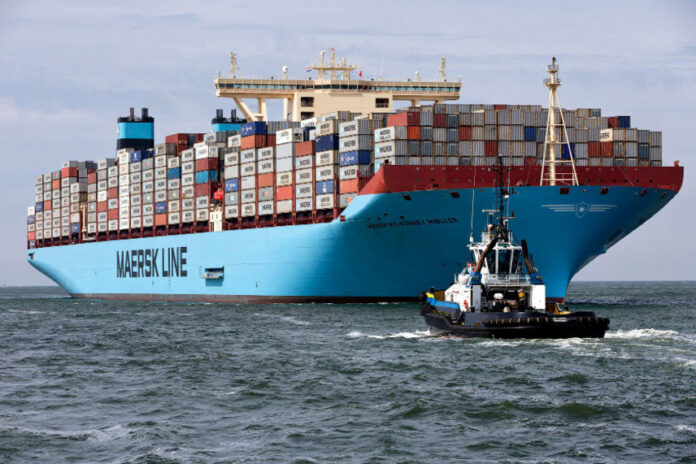South Africa’s exporters are bracing for a major setback after global shipping giant Maersk announced it will end all direct cargo shipments between the country and the United States from October 1.
The move, blamed on global supply chain realignments, will now see South African goods rerouted through European transshipment hubs—delays that are expected to push up shipping costs and undermine export competitiveness.
Previously, shipments to the US took four to six weeks. Under the new arrangement, goods could take six to eight weeks or longer, especially if Europe’s ports remain congested.
Transshipment fees, increased fuel and handling charges, and Maersk’s peak season surcharges will compound the pain, with freight rates forecast to jump between 20 and 40 percent.
The decision could not come at a worse time. It follows recent threats by Washington to review South Africa’s eligibility under the African Growth and Opportunity Act (AGOA)—a key trade pact that grants duty-free access to US markets for thousands of African goods. Tensions have escalated under the Trump administration amid Pretoria’s diplomatic stances and global alignments.
“This is more than just a shipping reshuffle,” said Dr Ernst van Biljon of IMM Graduate School. “It exposes South Africa’s strategic vulnerability in global supply chains. Tariffs and transport constraints now combine to erode margins and undermine long-standing commercial relationships.”
For businesses reliant on smooth transatlantic trade, the loss of one of only two direct routes to the US amounts to more than just longer shipping times. It signals an erosion of reliability and a creeping sense of trade isolation—not from new tariffs or sanctions, but from the logistical arteries of global commerce being quietly redrawn.
As Africa’s largest economy, South Africa now faces the challenge of navigating a new phase of trade uncertainty—one not made in policy halls, but mapped on shipping charts.



















